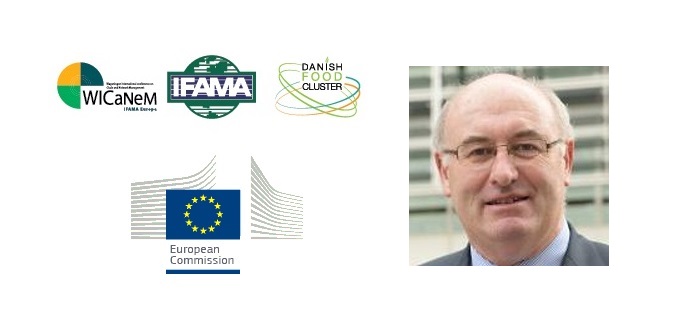EU funding worth £2.75 billion is available between now and 2020 to help finance synergies between agriculture and research, global food security leaders were told this week by farm commissioner, Phil Hogan.
Addressing the opening session of the International Food and Agribusiness Management Association (IFAMA) 2016 conference, meeting in Denmark all this week, Mr Hogan said that he believed agriculture policy was “back on the agenda” and that the EU was working hard to deliver on behalf of the industry’s farmers and agri-innovators.
“There is €3.6bn (£2.75bn) available at EU level between now and 2020 to fund synergies between agriculture and research, via Horizon 2020 and the European Innovation Partnership for ‘Agricultural Productivity and Sustainability’,” he told IFAMA delegates.
“Around €64 million of that will be dedicated to precision farming and digital technologies in the agriculture sector under the current Horizon 2020 Work Programme 2016-2017, with €30m being invested in the implementation of an ‘Internet of Things Large Scale Pilot’ on smart farming and food security.”
Commissioner Hogan based his comments on his recent participation in a significant number of important international meetings, such as COP21 in Paris and the G7 and G20 agricultural ministerials, adding that in all these gatherings, one message had rung loud and clear, namely that agriculture policy is back on the agenda.
While congratulating Europe’s agri-innovators for helping to drive the industry forward, however, he also made time to issue a warning that much more needs to be done over the next few years.
“There is evidence that the links between research, farmers and industry are still too weak,” he said. “Too many innovations are still not being transformed into practical tools, and too many research questions from the sector remain unanswered.
“Agricultural knowledge and innovation systems need to be made more efficient and interactive. And the same goes for food innovation.”
Pointing out that with €3.6bn available to fund new synergies, however, he said that farmers and the food industry needed to be empowered to embrace research and innovation, working in collaboration with scientists and investors to generate knowledge from the earliest possible stage.
“Making agriculture policy is not sexy,” he concluded. “It doesn’t grab many headlines. But it can deliver real results; not just for farmers and rural areas, but for society as a whole, and indeed for the planet itself.”




